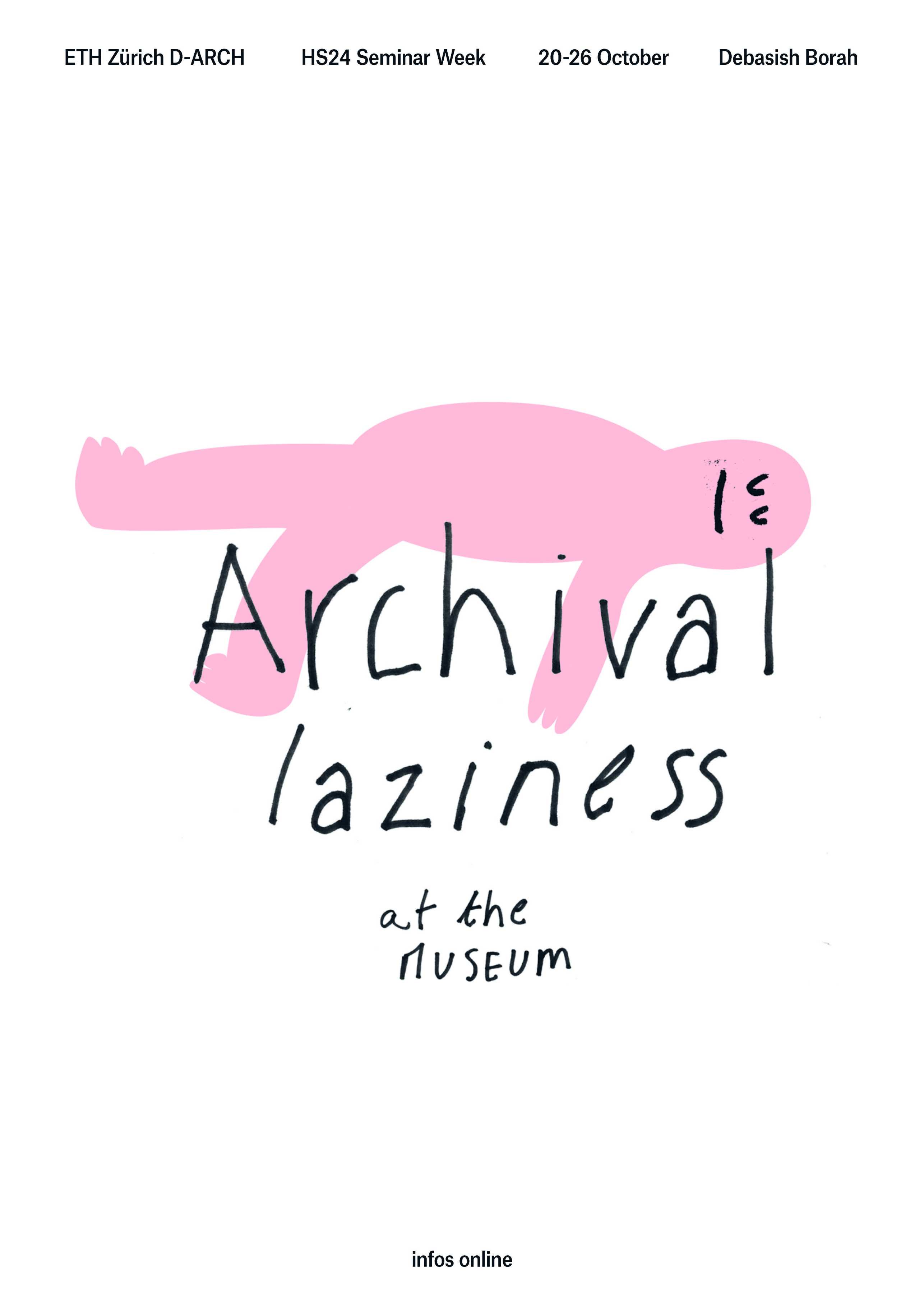HS24 Archival Laziness at the Ethnographic Museum Zurich
052-0835-24L / 20-26 October / HIL E67
What happens if we think about the archive through our bodies? Can we see archives as fragments of personal encounters instead of an impersonal all-encompassing institutional authority? The course critically approaches museum institutions, archives and the politics of value in the postcolonial and centres the body and its contigencies to think towards the museum and archive of the future.
I can safely say that the taken-for-grantedness of the emotionally contained subject is a residue of Euro-centerism in critical thinking. The separation of our body and mind, the distinction between material and emotional being is a style of thought; and Dipesh Chakravarty in “Provincializing Europe” has showed us that this style of thought was born in a certain place (Europe) and in a certain time (Modernity). In an attempt to blur such binaries and offer personal ambiguities instead of modern precision, the course attempts to look at the politics of the archive and its relationship to bodies. The course introduces decolonial, postcolonial, queer, and feminist theories, and attempts to reduce the archival premise from its modern totality and suspend in a state of partiality.
There are two type of bodies which will be discussed in the course, the body(s) of the person who contributed to build the archive by means of collection by travel, research, and scientific enquiries. The other body is our own body(s) as architecture students, artists, researchers who access these archives to make sense of the historical and contemporary. We will think about the body and its aspects of hunger, thirst, desire, ego, fear etc and look at the museum collection and archive through these fundamental bodily aspects. The course departs from laziness of the body as a vector upon which museum collections and archives are built. The notion of laziness comes from the colonial myth of the lazy native. We will look at certain case studies of objects from the archives from the Ethnographic Museum of Zurich in order to understand our own position. We are exposed to the notion of social lives of objects.
